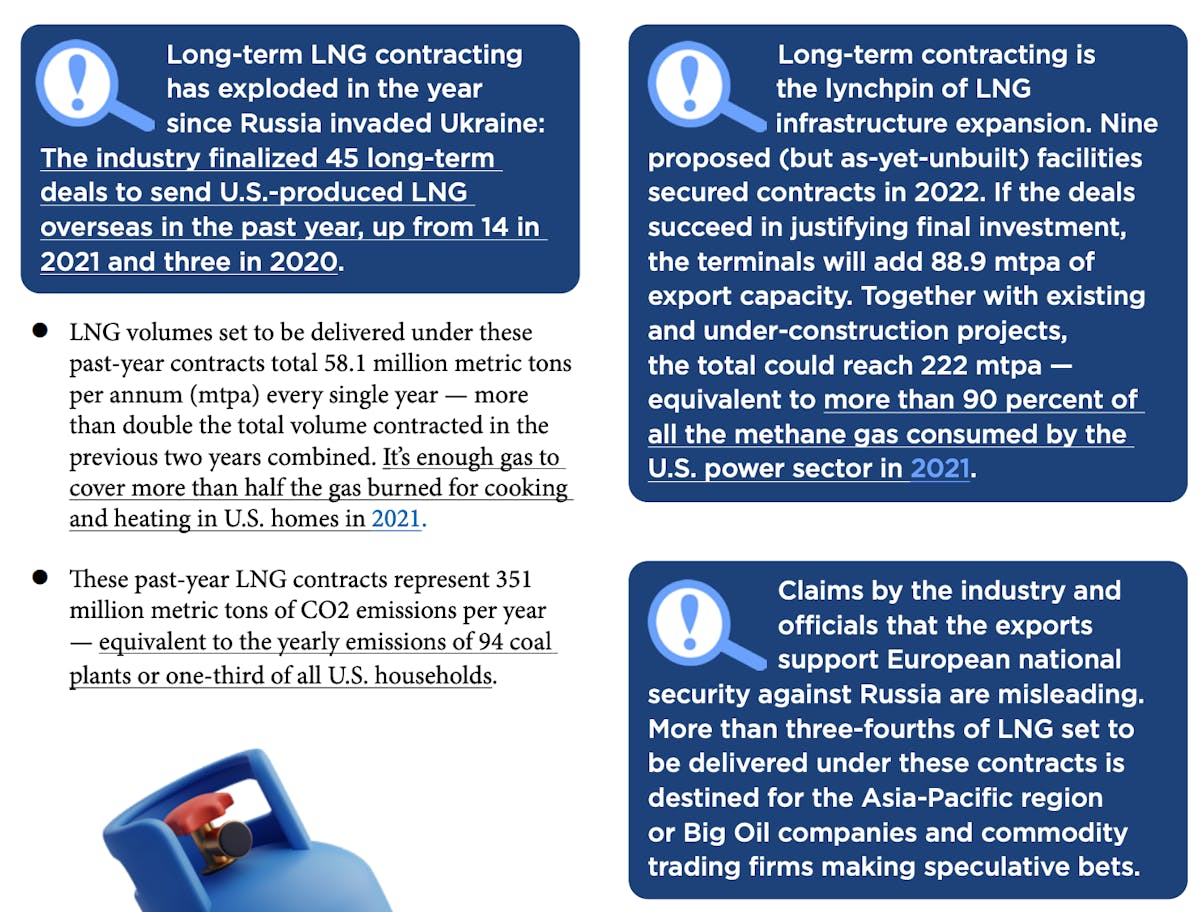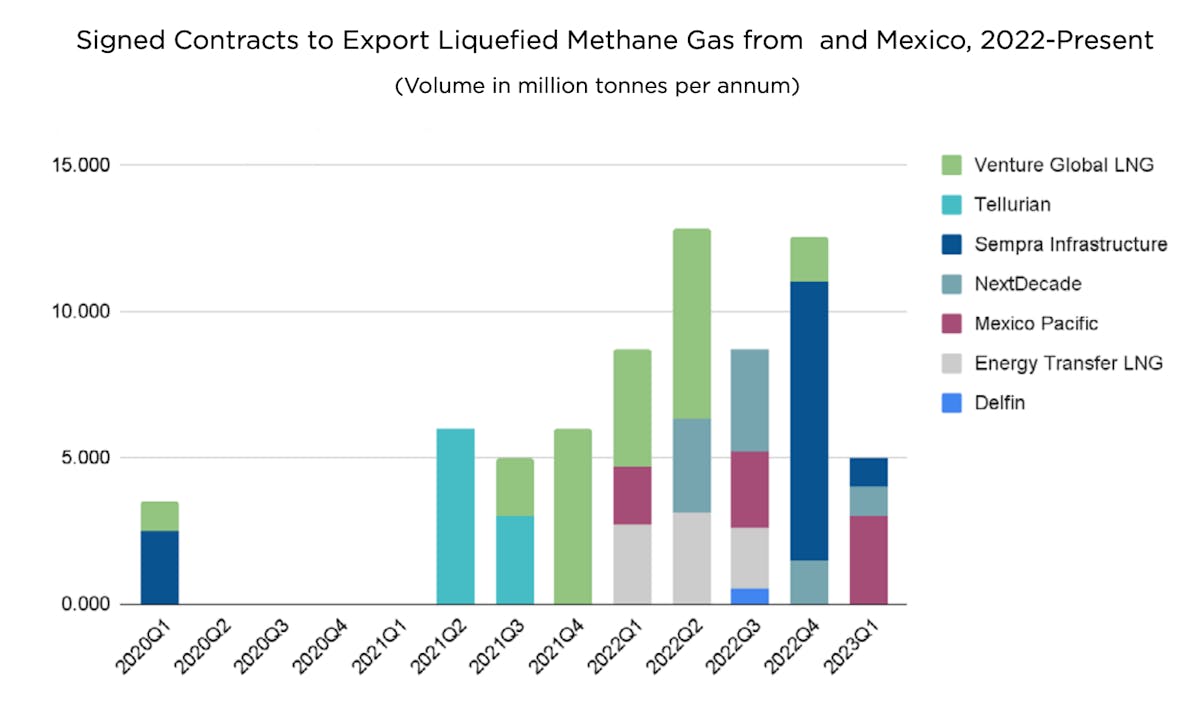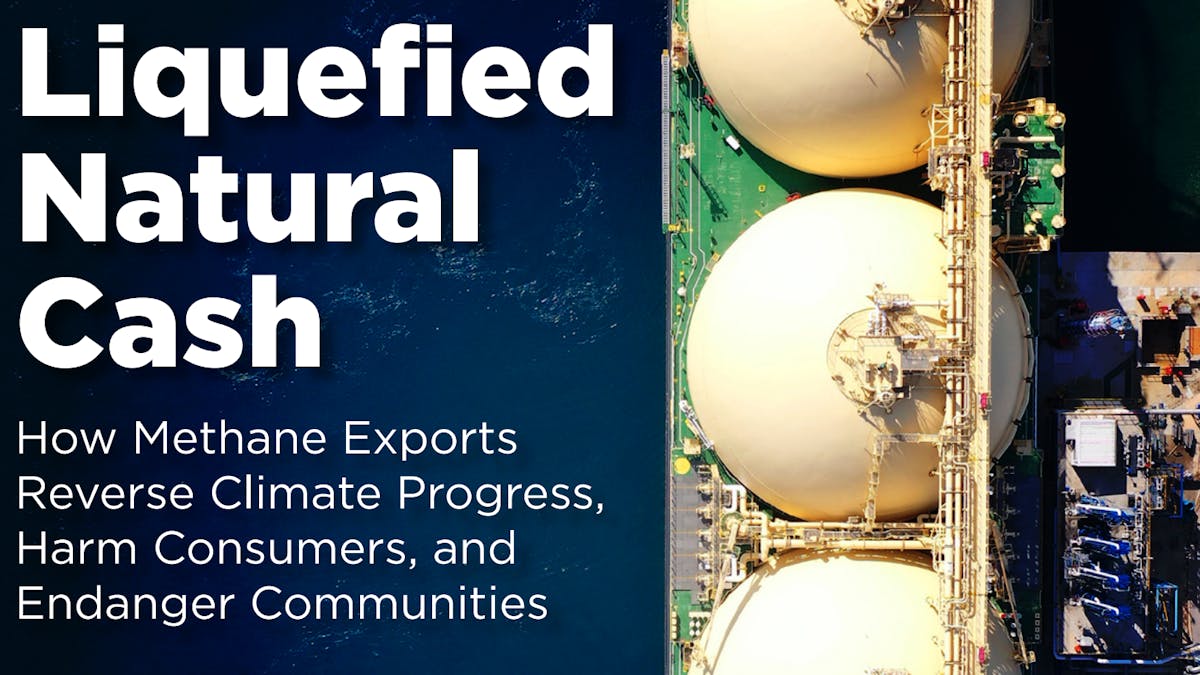US methane gas exports, which have skyrocketed in recent years, are poised to boom in the wake of the war in Ukraine, threatening to push up prices for consumers and unleash massive climate-warming emissions, a new analysis by Friends of the Earth, Public Citizen, and BailoutWatch has found.
Fossil fuel executives are exploiting the Russian invasion of Ukraine to justify contracts that commit the United States to keep exporting LNG into the 2040s. These long-term supply contracts, which have proliferated in the year since the Russian invasion, make it possible to build new export terminals by guaranteeing annual delivery of millions of tons of gas for 20 years or more to overseas consumers.

The contracts are a key precursor to infrastructure expansion — a permanent “solution” for the shortterm problem of European gas market volatility. That concern is already easing, yet most of the new contracts do not deliver gas until 2026 or later. The expansion of domestic LNG-export infrastructure, supported by the Biden administration, provides extractive industries with a lucrative lifeline to maintain their dominance. Yet it undermines efforts to protect communities, reduce carbon emissions and combat the spiraling climate crisis.
After Russia invaded Ukraine, global benchmark prices for methane gas soared. Exporters and drillers generated windfall profits by redirecting shipments from Asia to Europe. In time, with stockpiling and energy conservation, the European market stabilized. Despite that, the industry seized on the price volatility to lock in 45 long-term contracts and contract expansions to send US-produced methane gas overseas since the start of the war, more than double the previous two years combined.

These deals threaten to greenlight a new generation of polluting LNG export terminals, decimating frontline communities already hard-hit by climate impacts, locking in higher emissions, and forcing higher energy costs on consumers. With the bulk of the fuel going to Asia and commodity traders, meanwhile, the deals have little impact on Europe’s short-term energy needs.
LNG is nearly as dirty as coal after accounting for leakage and other emissions along its supply chain, despite the greenwashing public-relations efforts of powerful energy interests. Before it’s too late, the Biden administration and Congress must pump the brakes on this latest fossil fuel debacle.
